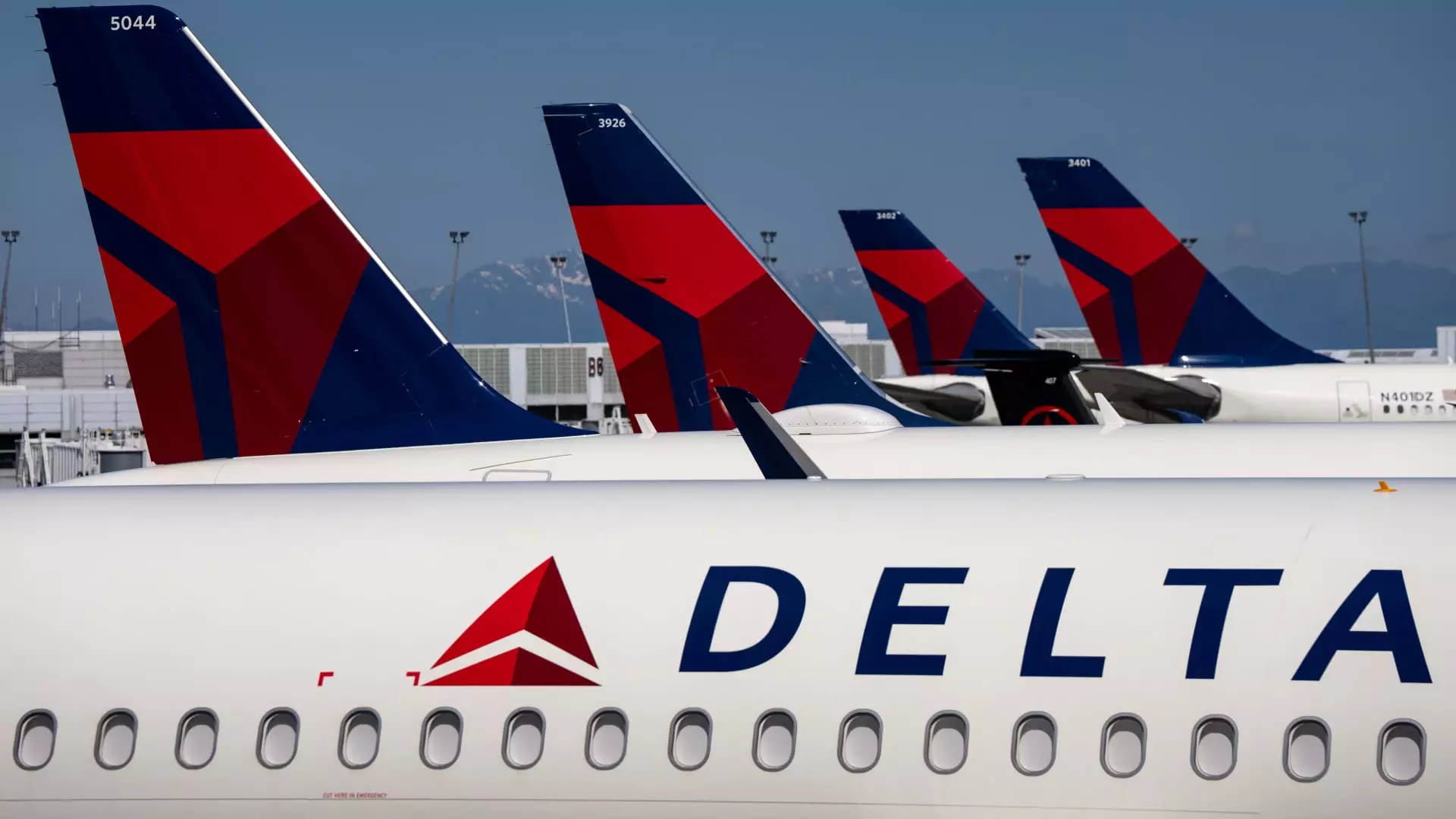Delta Air Lines, hailed as the most profitable airline in the U.S., is now breathing a sense of uncertainty that casts doubt on its future. The expectations that once heralded a prosperous 2025—a year that CEO Ed Bastian had predicted would break records—are now shrouded in anxiety. Predictions of a 3% to 4% capacity increase in the latter half of the year have evaporated as the company grapples with disappointing bookings, resulting in a flat year-over-year capacity instead. This reflects a broader issue within the industry that could have dire implications for both consumers and employees.
Rather than a boost in demand, Delta has experienced something more troubling: consumer confidence is faltering. In line with the business cycles influenced by President Donald Trump’s shifting trade policies, which Bastian himself has critiqued as the “wrong approach,” airline bookings are beginning to mirror the economic volatility that envelopes the entire market. This situation is raising alarms as leaders in the airline sector witness a decline in consumer and corporate travel confidence.
The Impact of Trade Policies on Travel Demand
Trump’s administration has pursued a tumultuous trade policy that has inadvertently affected the airline industry, resulting in fewer business trips and global travel hesitancies. After enjoying a promising start to the year, Bastian noted that corporate and leisure travel demand began to dwindle as early as mid-February. The airline industry stands at a juxtaposition: while international and premium travel continue to exhibit resilience, it’s the main cabin bookings that are taking a hit. This seesaw between rising and falling demand is a symptom of larger economic conditions that could spiral if left unchecked.
Delta’s mention of protecting margins and cash flow amidst broader economic uncertainty highlights a critical issue. Instead of providing reliable services that nurture consumer loyalty, airlines find themselves scrambling to mitigate financial risks. The industry appears to be at a crossroads, caught between the need to grow and the trends indicating a lean towards financial caution.
The Repercussions of Consumer Confidence Decline
It is quite alarming to note the extent to which Wall Street analysts are adjusting their earnings forecasts based on delta’s outlook. Analysts have cut earnings estimates for airlines due to fears of dwindling airline ticket sales, a trend that Bastian himself has quantified as a decline in consumer confidence. What once seemed like a source of stability is rapidly dissolving into an arena of controlled risk.
This ongoing decline in consumer confidence could create a domino effect: as earnings forecasts are downsized, investors will inevitably question the long-term viability of the airline sector. If Delta—a bellwether for profitability in the industry—is adjusting its financial outlook, what implications does this have for other airlines such as American, United, and Southwest? Investors and stakeholders alike must remain vigilant, for Delta’s strategy may pave the way for a tumultuous downturn across the entire airline industry.
Shifting Consumer Behavior and its Consequences
The data reveals a notable transition in consumer behavior; organizations are rethinking business travel as the political landscape falters, which is directly impacting revenues. As companies retreat from booking business-class tickets, airlines are faced with the stark reality that they may be losing not just ticket sales, but also long-standing relationships with loyal business travelers. This trend denotes a heartbreaking shift for an industry that has relied heavily on corporate partnerships and repeat customers.
What we continue to overlook is the emotional toll this uncertainty has on employees, who may face layoffs or reduced hours as a result of these tumultuous trends. Employees of Delta and other airlines are anxiously watching as their futures weigh heavily on decisions being made far above their heads. Increasingly, the consequences of political maneuvering are trickling down to affect those who provide the very services that airlines offer.
At the crux of it, an industry built on the global connection is feeling the strain of isolationist policies and declining consumer confidence. Ultimately, Delta Air Lines stands as a bellwether, showcasing why we need to consider the wider economic implications of political decisions and policies that shape our consumer landscape.

